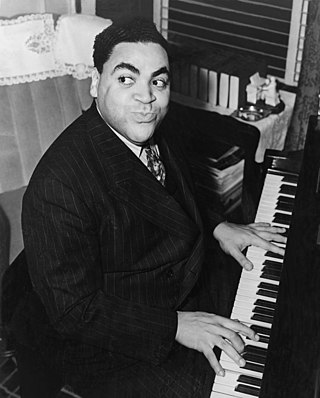
Thomas Wright "Fats" Waller was an American jazz pianist, organist, composer, and singer. His innovations in the Harlem stride style laid much of the basis for modern jazz piano. His best-known compositions, "Ain't Misbehavin'" and "Honeysuckle Rose", were inducted into the Grammy Hall of Fame in 1984 and 1999. Waller copyrighted over 400 songs, many of them co-written with his closest collaborator, Andy Razaf. Razaf described his partner as "the soul of melody... a man who made the piano sing... both big in body and in mind... known for his generosity... a bubbling bundle of joy". It is likely that he composed many more popular songs than he has been credited with: when in financial difficulties he had a habit of selling songs to other writers and performers who claimed them as their own.
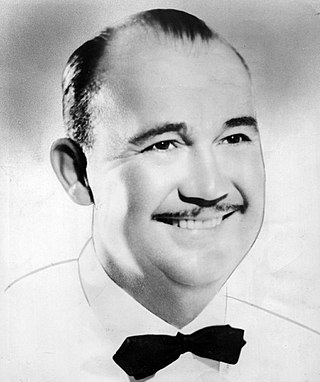
Paul Samuel Whiteman was an American bandleader, composer, orchestral director, and violinist.

Rodgers and Hart were an American songwriting partnership between composer Richard Rodgers (1902–1979) and the lyricist Lorenz Hart (1895–1943). They worked together on 28 stage musicals and more than 500 songs from 1919 until Hart's death in 1943.

Leo Robin was an American composer, lyricist and songwriter. He is probably best known for collaborating with Ralph Rainger on the 1938 Oscar-winning song "Thanks for the Memory," sung by Bob Hope and Shirley Ross in the film The Big Broadcast of 1938, and with Jule Styne on "Diamonds Are a Girl's Best Friend," a song whose witty, Cole Porter style of lyric came to be identified with its famous interpreter Marilyn Monroe.
Harry Rubenstein, known professionally as Harry Ruby, was an American actor, pianist, composer, songwriter and screenwriter, who was inducted into the Songwriters Hall of Fame in 1970. He was married to silent film actress Eileen Percy.

Bert Kalmar was an American songwriter, who was inducted into the Songwriters Hall of Fame in 1970. He was also a screenwriter.
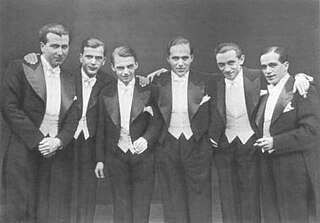
The Comedian Harmonists were an internationally famous, all-male German close harmony ensemble that performed between 1928 and 1934 as one of the most successful musical groups in Europe before World War II. The group consisted of Harry Frommermann, Asparuh "Ari" Leschnikoff, Erich A. Collin, Roman Cycowski (baritone), Robert Biberti (bass), and Erwin Bootz (pianist).
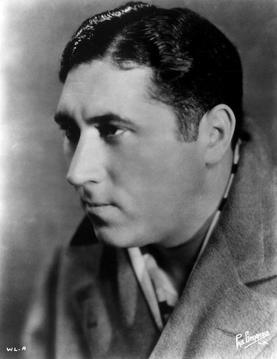
Walter Lang was an American film director.
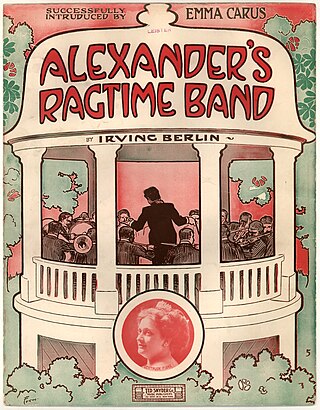
Screen Songs are a series of animated cartoons produced at the Fleischer Studios and distributed by Paramount Pictures between 1929 and 1938. Paramount brought back the sing-along cartoons in 1945, now in color, and released them regularly through 1951. Two of Paramount's one-shot cartoons quietly revived the format later: Candy Cabaret (1954) and Hobo's Holiday (1963).
Phonofilm is an optical sound-on-film system developed by inventors Lee de Forest and Theodore Case in the early 1920s.
Ko-Ko Song Car-Tunes, Song Car-Tunes, or Sound Car-Tunes, is a series of short three-minute animated films produced by Max Fleischer and Dave Fleischer between May 1924 and September 1927, pioneering the use of the "Follow the Bouncing Ball" device used to lead audiences in theater sing-alongs. The Song Car-Tunes also pioneered the application of sound film to animation.

Karol Juliusz "Igo" Sym was a Polish actor and collaborator with Nazi Germany. He was killed in Warsaw by members of the Polish resistance movement.

Georg John was a German stage and film actor.
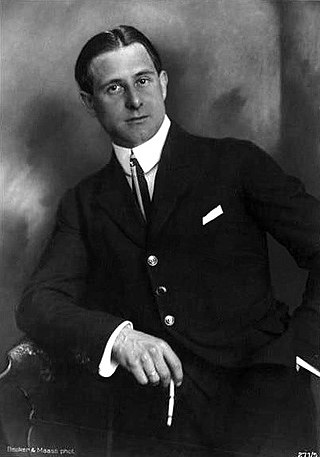
Carl Theodor Auen was a German film actor of the silent era. He appeared in more than 110 films between 1914 and 1938. Auen was a member of the Militant League for German Culture and also a member of the Advisory Council (Präsidialrat) of the president of the Reichsfilmkammer.

Hans Ferdinand Junkermann was a German actor. He was married to the Austrian actress Julia Serda.
Hans May was an Austrian-born composer who went into exile in Britain in 1936 after the Nazis came to power in his homeland, being of Jewish descent.

Harry Archer was an American composer and orchestra leader. He is best remembered for six Broadway shows from the 2nd and 3rd decades of the 20th-century, but also made several popular recordings in the 1920s for Brunswick Records.

Donald Heywood was a Trinidadian-born American songwriter, composer, writer and director. He composed for "I'm Coming Virginia" in 1926, which became a hit for Ethel Waters. He became a prominent figure in black musical theater, and produced scores for films such as Moon Over Harlem (1939) and Murder on Lenox Avenue (1941).













